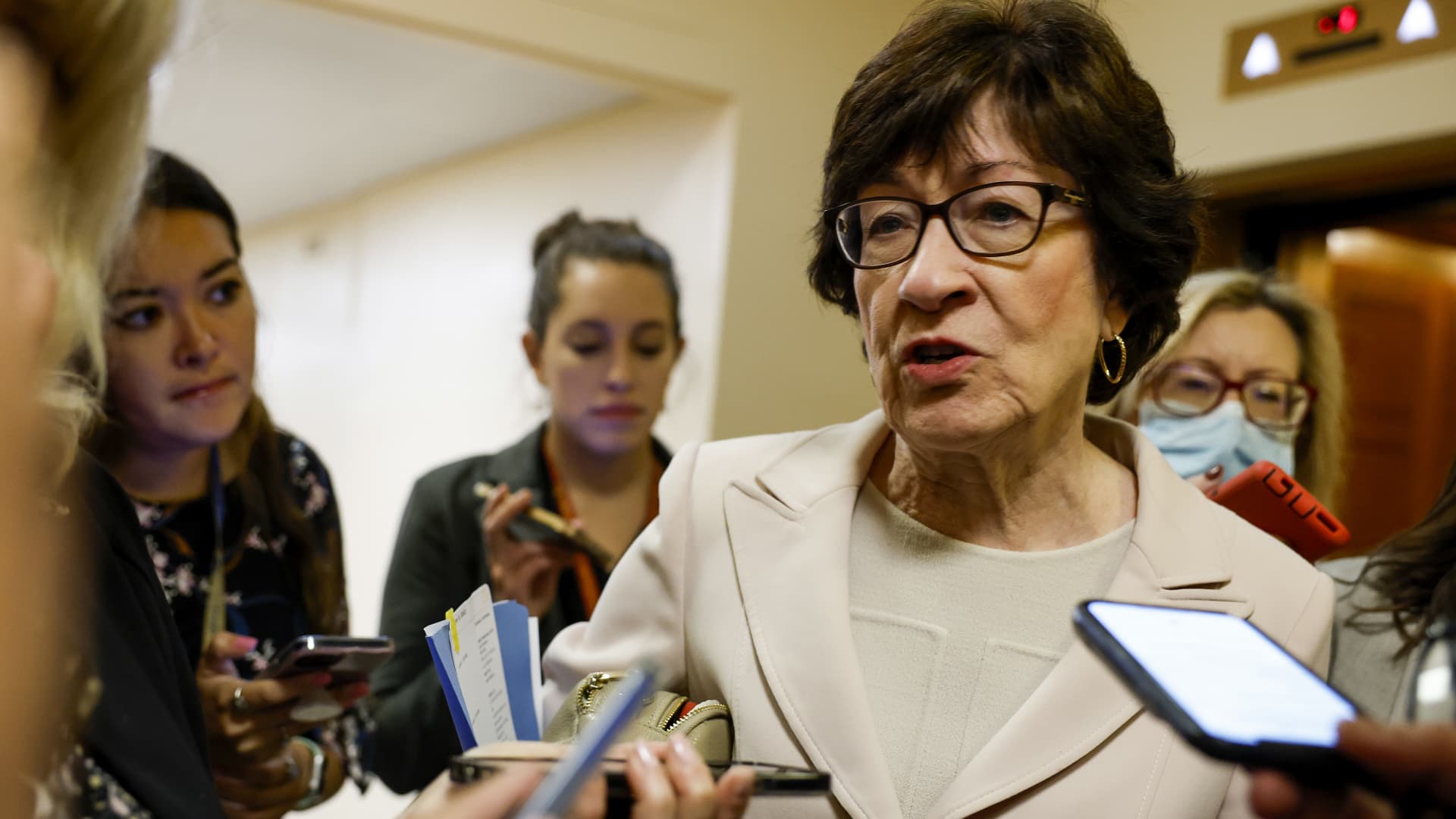U.S. senators on Friday called for Medicare to offer broad coverage of Alzheimer’s treatments approved by the Food and Drug Administration, warning that current restrictions cost patients precious time as their disease progresses.
“Given the progressive nature of this terminal disease, we encourage you to take steps now to ensure patients have immediate access to FDA-approved treatments if the patient and clinician decide it is right for the patient,” the senators told Health and Human Services Secretary Xavier Becerra and Centers for Medicare and Medicaid Services Administrator Chiquita Brooks-LaSure in a letter.
The group comprised 18 Republicans and two Democrats, led by Sens. Susan Collins, R-Maine, and Shelley Moore Capito, R-W.V.
The 20 senators told CMS that Alzheimer’s disease will cost the nation $1 trillion by 2050 if the U.S. does not take decisive action. The population of seniors, who are most affected by the disease, is expected to increase more than 50% to 86 million over the next 30 years, according to the Census Bureau.
Public pressure on Medicare has mounted since the FDA granted accelerated approval of Eisai and Biogen‘s treatment Leqembi, an antibody that targets brain plaque associated with the disease. The product has shown promise in treating early Alzheimer’s, slowing cognitive decline by 27% in a phase late-stage clinical trial. It also carries risks of brain swelling and bleeding.
CMS has severely limited coverage of Alzheimer’s treatments like Leqembi that receive accelerated approval. Medicare will only cover the drug, priced by Eisai at $26,500 per year, for people in clinical trials approved by the FDA and the National Institutes of Health.
But Eisai has already completed its late-stage trial and is no longer enrolling participants. As a consequence, Medicare coverage for the expensive drug is basically nonexistent.
Ivan Cheung, the U.S. CEO of Eisai, told CNBC on Thursday that the company does not know of any seniors who have gotten the drug covered through Medicare.
The senators said delays in receiving treatment can cause massive harm for patients as Alzheimer’s disease progresses.
“Processes that may delay coverage decisions by several months can impose significant access delays, resulting in irreversible disease progression and added burdens for caregivers and loved ones,” the senators told CMS.
The senators’ letter comes after more than 70 House lawmakers issued a similar call this month. The representatives said the current restrictions put people who live in rural communities at a disadvantage because trials are often in bigger cities.
“Patients, families, and caregivers living in rural and underserved areas should have the same opportunity for access to treatment,” the House lawmakers told Becerra and Brooks-LaSure. “It is an enormous physical and financial burden for Medicare beneficiaries to spend countless hours traveling to limited research institutions that host the trials.”
The Alzheimer’s Association wrote CMS in December calling for the agency to provide unrestricted Medicare coverage for Leqembi. The association’s letter was signed by more than 200 Alzheimer’s researchers and experts.
The American Academy of Neurology, the world’s largest association of neurologists, told Medicare in a letter earlier this month that its experts have concluded Eisai’s late-stage clinical trial for Leqembi was well-designed and the data was clinically and statistically significant. AAN’s President Dr. Orly Avitzur asked Medicare to provide broader access for Leqembi.
Eisai expects to receive full FDA approval for Leqembi as early as this summer. Under CMS policy, Medicare would then provide broader coverage for people participating in research studies backed by the agency.
“One of the things I would just emphasize is, as you know, in this particular class, [we] really wanted to have more information as we learn what these products are going to do,” Medicare Administrator Brooks-LaSure said on Tuesday during a call with reporters. “But we continue to be open to hearing new data from manufacturers and advocates.”
Cheung said it’s possible Medicare could offer coverage with no restrictions if the agency determines there’s significant evidence supporting the treatment’s benefits.
“With a high level of evidence … the restrictions should be very limited, or maybe even no restrictions and that is Eisai’s position,” Cheung said. “We believe Medicare beneficiaries should have unimpeded access, broad and simple access to Leqembi because the data fulfill those criteria.”
Medicare’s restrictive policy stems from controversy with Aduhelm, another antibody developed by Biogen and Eisai. The FDA gave Aduhelm accelerated approval even though its independent advisors said the data didn’t demonstrate a benefit for patients. Three advisors resigned over the FDA approval of Aduhelm.
